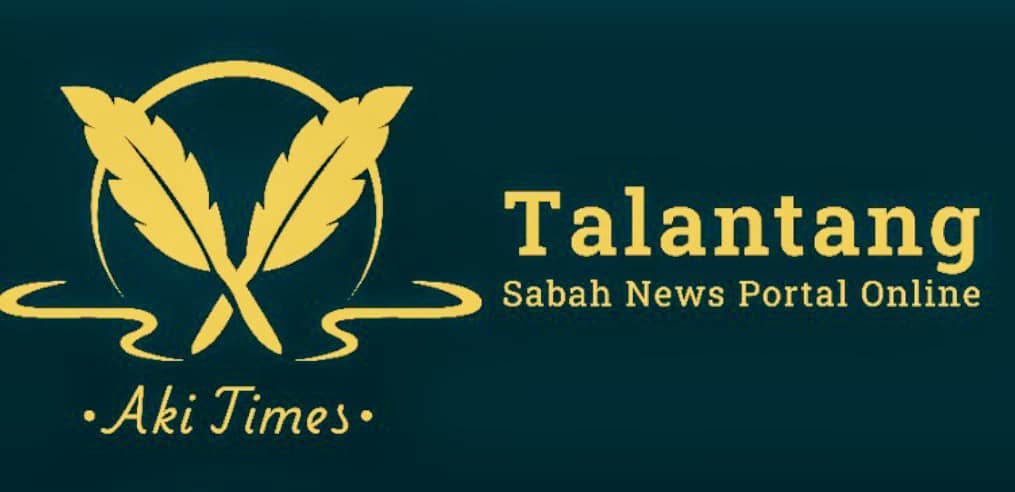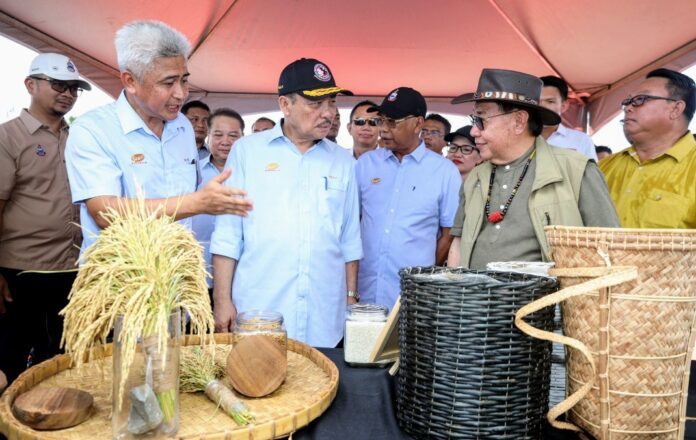Chief Minister Datuk Seri Panglima Haji Hajiji Haji Noor and Deputy Chief Minister Datuk Seri Panglima Dr Jeffrey Kitingan being briefed on the pilot project padi variation TR8 by Sawit Kinabalu Group Managing Director/CEO Victor Ationg (left).
KOTA MARUDU: The State Government, through its Government-linked Company (GLC) Sawit Kinabalu Group and the Agriculture Department, has embarked on a 100- hectare padi pilot project at Kampung Ongkilan here.
Chief Minister Datuk Seri Panglima Haji Hajiji Haji Noor said the pilot project will assist the State Government to boost Sabah’s self-sufficiency level (SSL) to 60 per cent by 2030.
“Food security is a primary global concern, and Sabah is not exempted. Sabah’s populace need at least 400,000 tonnes of rice annually, while domestic rice production could only supply 20 per cent of the state’s consumption.
“It is the responsibility of the government to handle food security wisely and effectively to meet the people’s demand, particularly rice,” he said at the launching of the pilot project today.

Chief Minister Datuk Seri Panglima Haji Hajiji Haji Noor and Deputy Chief Minister Datuk Seri Panglima Dr Jeffrey Kitingan viewing the padi field.
Sawit Kinabalu is using all its available resources and sophisticated technology applications, including drones, in its rice cultivation operation and maintenance, as well
as a more systematic water pump and irrigation system for the RM5 million project.
Hajiji said the district has about 2,600 hectares of abandoned or idle padi fields.
“Therefore, actions must be taken to ensure these abandoned padi fields can be revitalised. I want more GLCs in Sabah to emulate Sawit Kinabalu’s efforts,” he said.
The Chief Minister also wants unutilised lands belonging to GLCs to be developed for agriculture, especially padi, which could be done with assistance from the State Agriculture, Fishery and Food Industry Ministry.
“Sawit Kinabalu’s initiative is in line with the Government’s aspiration to develop the state’s padi and rice productivity.
“I have high hopes that Sawit Kinabalu’s padi cultivation project will be expanded to achieve economy of scale level, and to boost the Group’s profit,” he said.
The Chief Minister said the State Government is always supportive of initiatives that bring about rapid, sustainable economic development and improve the quality of life of the community throughout Sabah.
He was glad to note that in the effort to develop Kota Marudu, Sawit Kinabalu, apart from operating palm oil plantations and mills, is also playing a significant role in other sectors, like the barramundi (Siakap) breeding project in Langkon, which will further stimulate the food industry in the district.
“I urge all government departments and relevant agencies to always take proactive action in bolstering the state’s main economic growth sectors as stipulated in the Hala Tuju Sabah Maju Jaya,” he said.

